How to get rid of slugs: 13 natural ways to remove them from the garden
Follow our advice on how to get rid of slugs in the garden the chemical-free way – and without the need to kill them
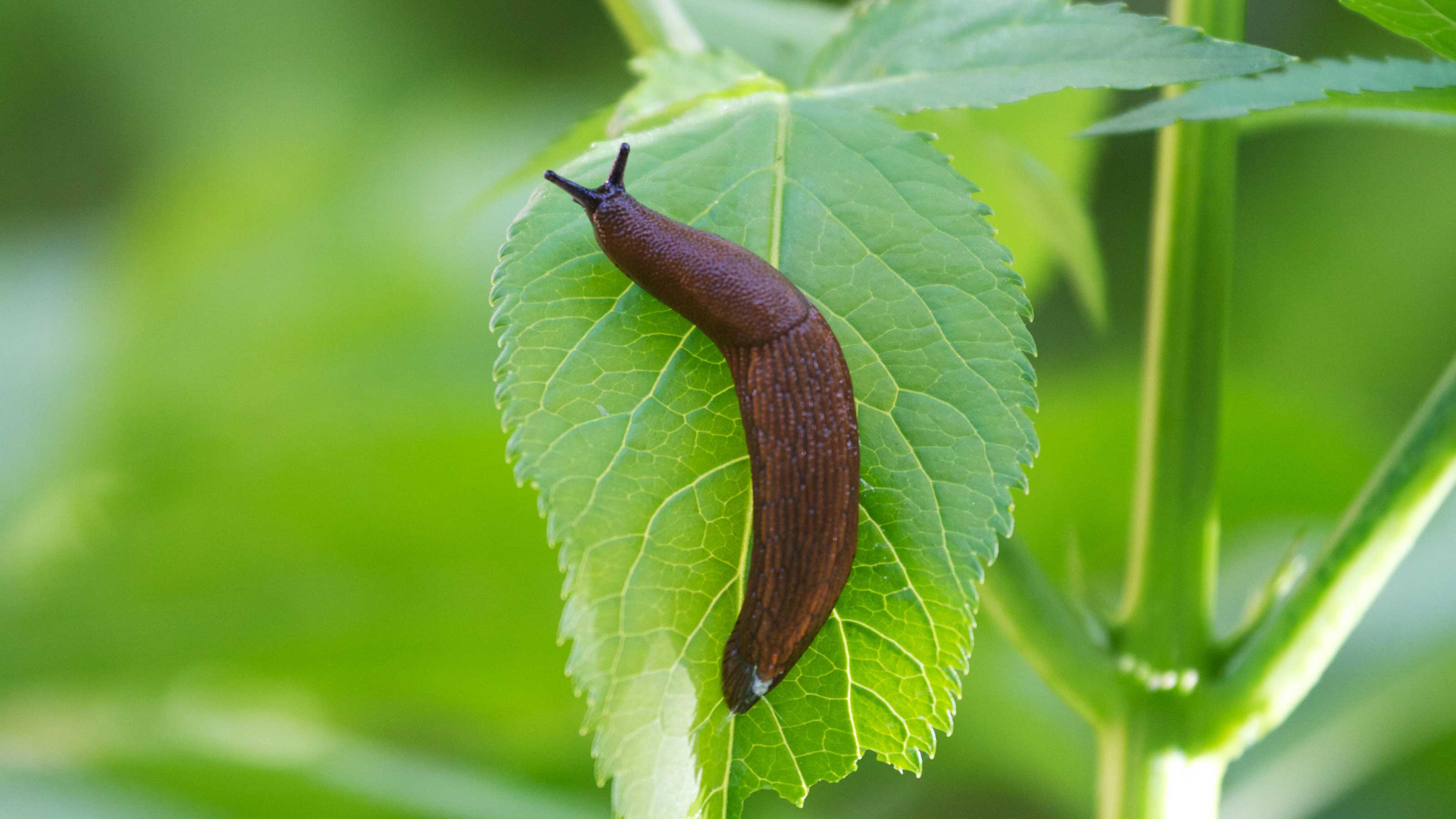

One of the biggest problems for gardeners is how to get rid of slugs. There seem to be more of them and they're getting bigger and more destructive.
Global warming means more of them tend to survive our warmer winters and the fashion for densely planted leafy gardens is heaven for them. The more organic material and mulch you put on your garden, the more you make it attractive for slugs. Yet, just like with how to get rid of ants, there's no need to find out how to kill them with chemicals as there are plenty of natural methods you can use to deter them.
One of the most obvious methods is to create a gritty barrier between your plant and the slugs. Spread grit, gravel, nutshells or crushed eggshells around your plants and the slugs will avoid crawling over it. Slugs love to feed on fresh green growth such as seedlings, so the younger the plant the more susceptible it is.
Experts at the Royal Horticultural Society explain, 'Slugs are widespread animals which can cause problems in the garden, eating holes in leaves, stems, flowers, tubers and bulbs.'
They can cause damage throughout the year on a wide range of plants, but seedlings and new growth on herbaceous plants in spring are most at risk. Most slugs feed at night, and the slime trails, if present, can alert you to the level of activity. Damage is usually most severe during warm humid periods.'
How to get rid of slugs from your garden: 13 simple solutions
When it comes to how to get rid of slugs, it makes sense to choose natural ways of dealing with them wherever possible, instead of choosing to kill them. We've rounded up some of our top methods for dealing with slugs in your garden.
1. How to get rid of slugs with beer
Slugs like the smell of beer and will fall in if temptation is put in their path. So an easy and inexpensive way for how to get rid of slugs is to make a beer trap.
Although, experts at Rentokil say, 'It is worth noting that this home remedy is only effective for a small slug problem. Controlling a large infestation can be quite expensive as the beer needs to be replaced daily.'
- Ease a plastic pot into the soil near plants that slugs make a beeline for.
- Half fill it with beer.
- Et voila, no more slugs.
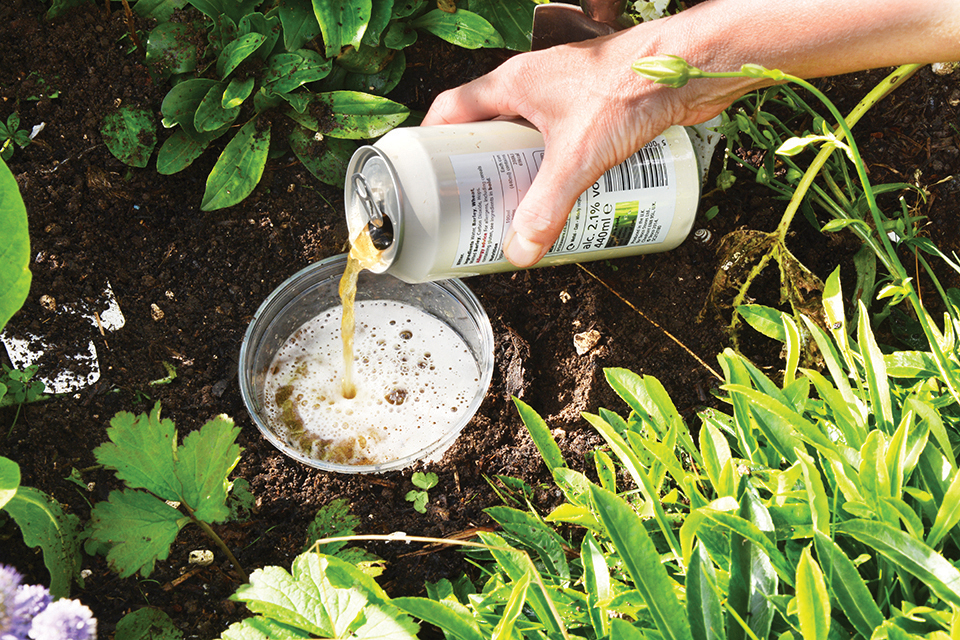
A beer trap can be an efficient way to get rid of slugs in a garden
2. How to get rid of slugs with coffee grounds
Slugs don’t like the smell of ground coffee. The best bit? It's all decomposable so a great option if you're learning how to create an eco-friendly garden. Follow these tips for how to get rid of slugs with coffee grounds:
- Scatter coffee grounds around plants they’ve been attacking and they will start avoiding them.
- You can mix the grounds with eggshells too to deter them further.
3. Get rid of slugs by creating a barrier
Use crushed eggshells, nutshells, sharp sand, grit, pine needles or thorny cuttings to create protective barriers.
Use them to make a circle around a plant that has been affected by munching. Slugs find the gritty edges uncomfortable against their soft flesh.
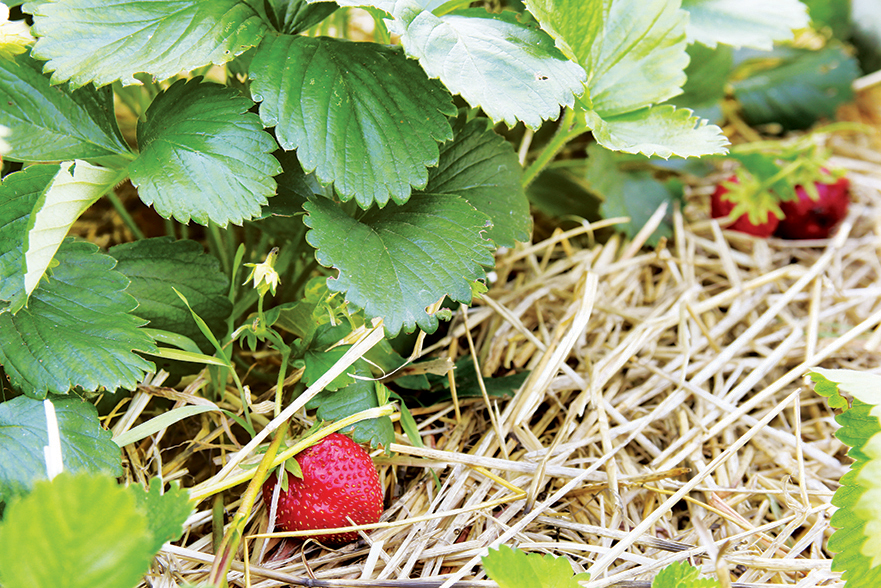
You can use straw as a barrier for slugs in a garden
4. How to get rid of slugs with seaweed
Seaweed, both fresh and powdered, is a winning natural repellent for slugs, and the bonus is it’s great for slugs as well.
It works due to seaweed's salt content, which we all know slugs aren’t that keen on (to put it mildly). Simply place the seaweed (or sprinkle if using the powdered form) around the plants they're nibbling and you should hopefully start to see a difference soon.
5. Get rid of slugs on potted plants with petroleum jelly
Petroleum jelly can help protect potted plants from slug damage. The slippery texture makes it difficult for a slug to grip onto a surface.
Just apply it in a band around the rim of your flower pots, container gardening ideas, and even the stalks of your plants. Vapour rub will work in a similar way if you don't have any petroleum jelly to hand.
6. Choose plants slugs hate
Slugs don’t like highly scented plants, so varieties like lavender, rosemary and sage are a good choice, as well as wormwood, rue, fennel, and anise, as recommended by Rentokil's experts.
In fact, slugs tend to avoid most herbs so that’s one area of the garden that's typically nibble free. They’re not keen on geraniums and begonias either.
You can find out how to create a herb garden in our expert feature if you want to get planting some strongly scented herbs as soon as possible.
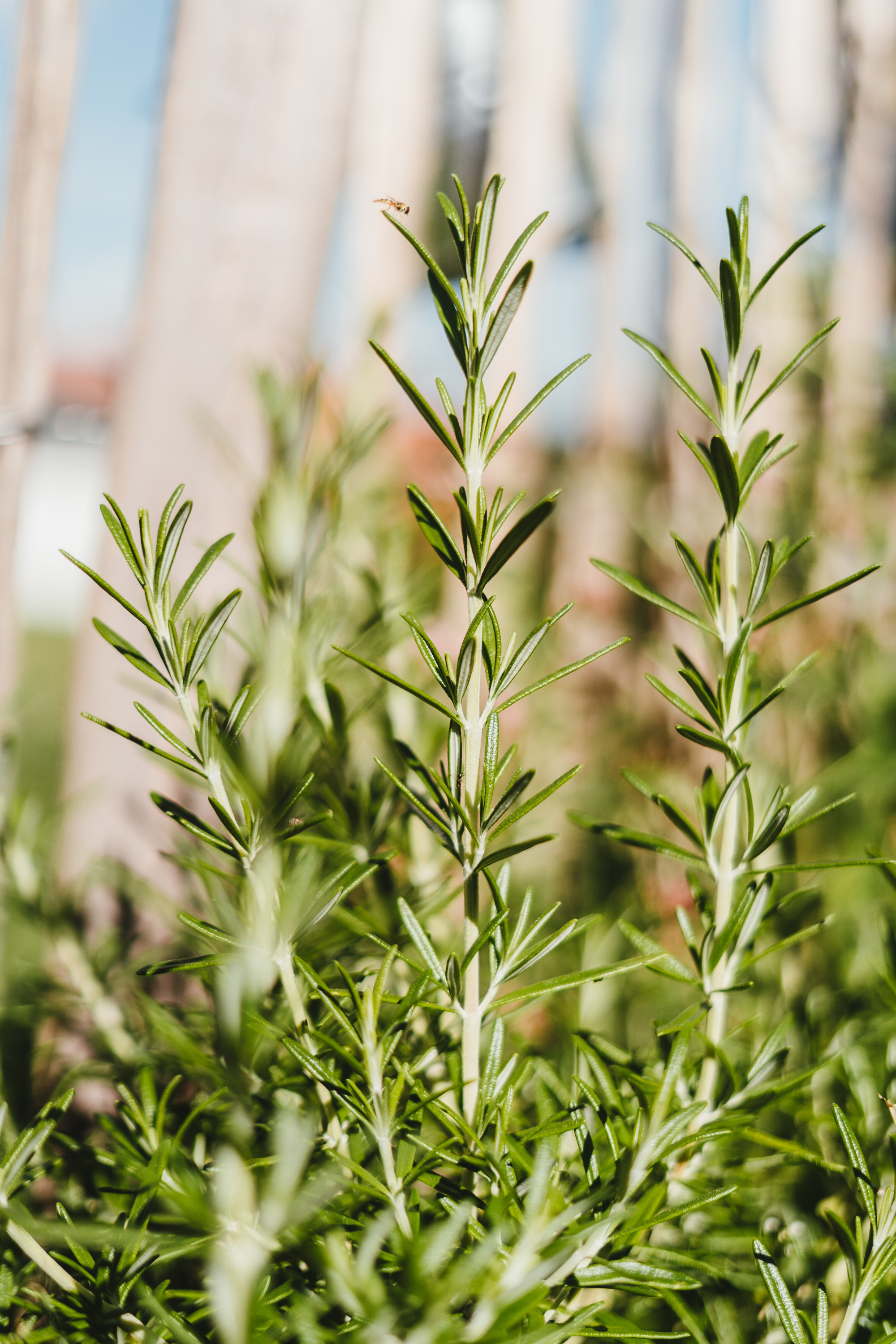
Slugs aren't fans of highly scented plants like rosemary
7. Avoid planting certain flowers
Hostas, delphiniums, lupins and dahlias can get shredded by armies of slugs.
Much as we love them, slugs love them more, so be prepared for a constant battle on your hands if you choose to fill your garden with them. Lettuce also needs TLC as it's catnip for slugs.
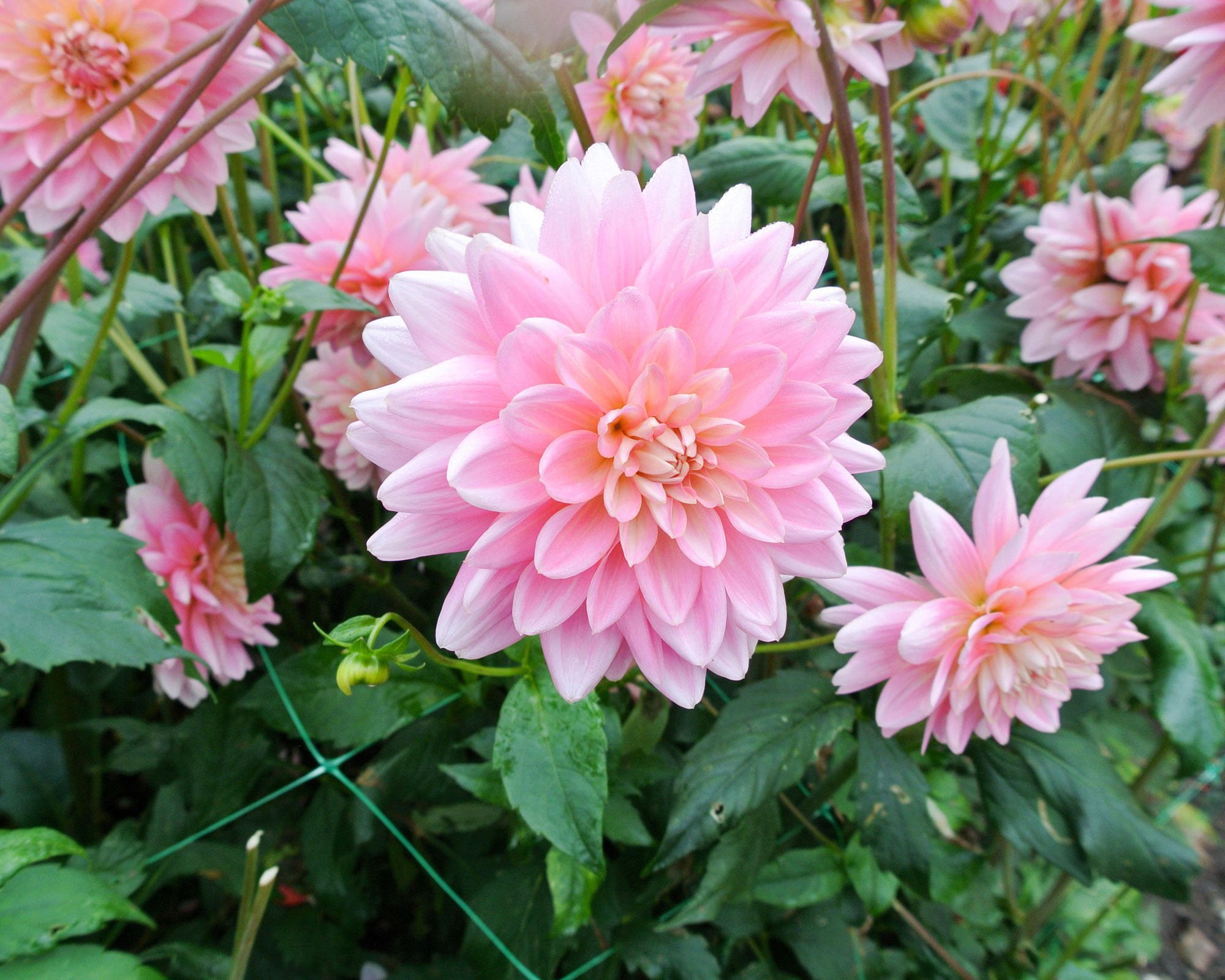
Plants like dahlias will typically attract lots of slugs
8. Lay copper tape to get rid of slugs
Self-adhesive copper tape (available at Amazon) reacts with slug slime, giving a tiny electric shock to slugs each time they come into contact with it.
It’s a great way of deterring slugs from reaching your plants. The tape can be attached to pots and raised garden bed ideas to protect your fruit and veg crops.
9. How to get rid of slugs with a compost trap
Vegetable peelings and kitchen waste are useful when it comes to how to compost, but they can also help you to attract and then dispose of slugs. It's an easy way to try and keep control of what slugs are eating in your garden. Here's how to do it:
- Leave a pile of leafy kitchen compost such as lettuce leaves in a damp and shady corner to attract large numbers of slugs.
- Check the garden at night by torchlight to catch them congregating.
- As they gather, scoop them up and dispose of them.
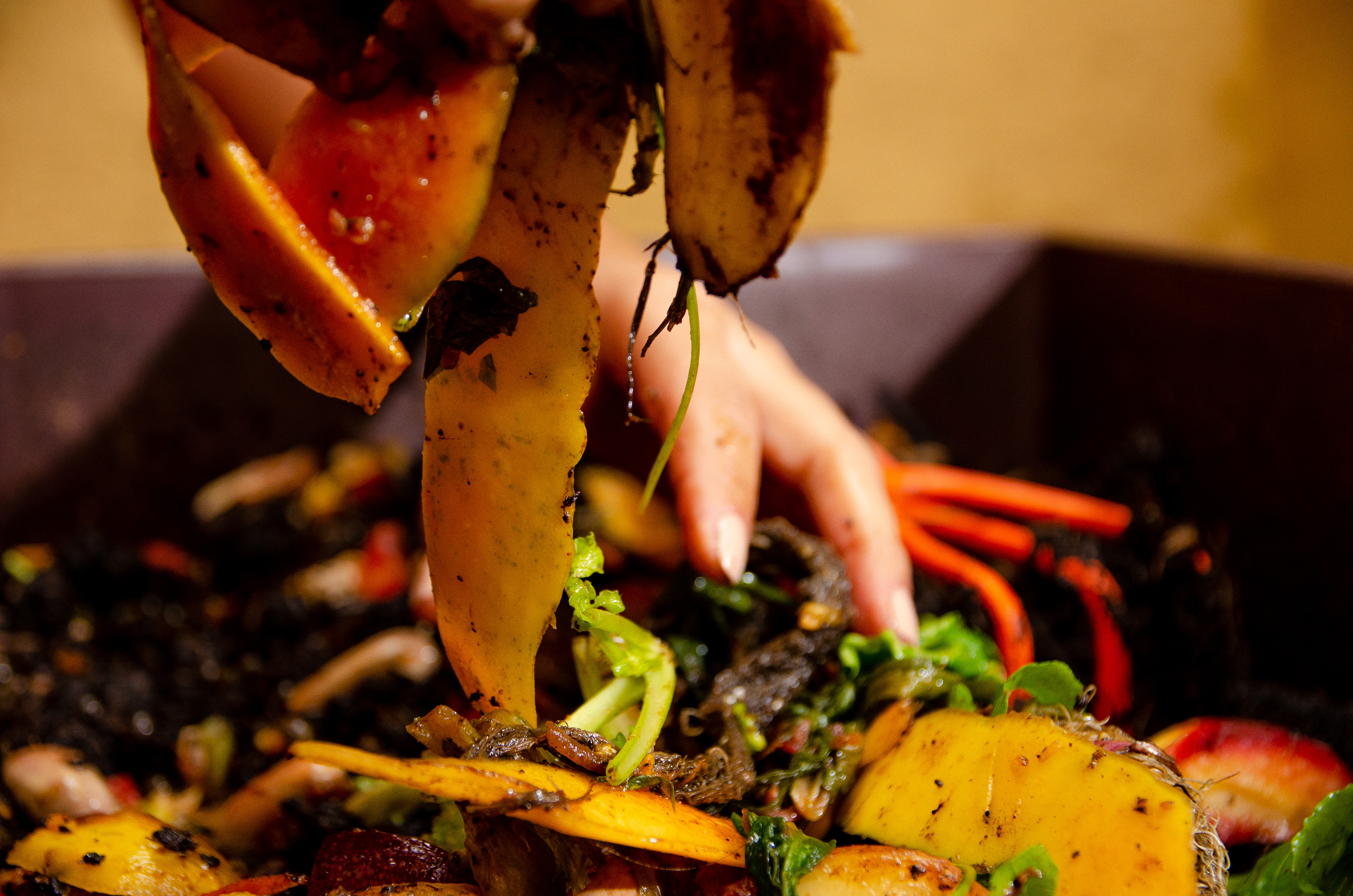
Leftover food scraps can be a clever way to catch slugs
10. Use nematodes to kill slugs
These soil-dwelling micro-organisms are a great way to kill slugs – they are effective when it comes to how to get rid of aphids too if you also have a problem with them. It sounds a bit technical but it couldn’t be easier.
Simply mix the powder with water and sprinkle it on to the soil just once in spring or summer and watch them spin their magic.
The Royal Horticultural Society's experts say, 'The nematodes enter slugs' bodies and infect them with bacteria that cause a fatal disease. A moist warm soil (temperatures of 5-20ºC (41-68ºF) is required, therefore control is most effective during spring to early autumn. Best results are achieved by applying in the evening to moist but well-drained soils; control may be less successful in heavy soils, such as clay.'
Nemaslug natural slug killer is readily available from Amazon and is safe to be used around children, pets and other animals, so it won't have a detrimental impact on your wildlife garden ideas.
11. How to get rid of slugs using grapefruit or melon halves
Love to tuck into the odd melon or grapefruit? Well before you throw away the leftovers, did you know that they can be a good option for how to get rid of slugs?
Simply place the empty grapefruit shells near plants that slugs are drawn to, then watch as the slugs take cover in them overnight. In the morning they will all be nicely collected up for you to dispose of. You can also try method with melons too.
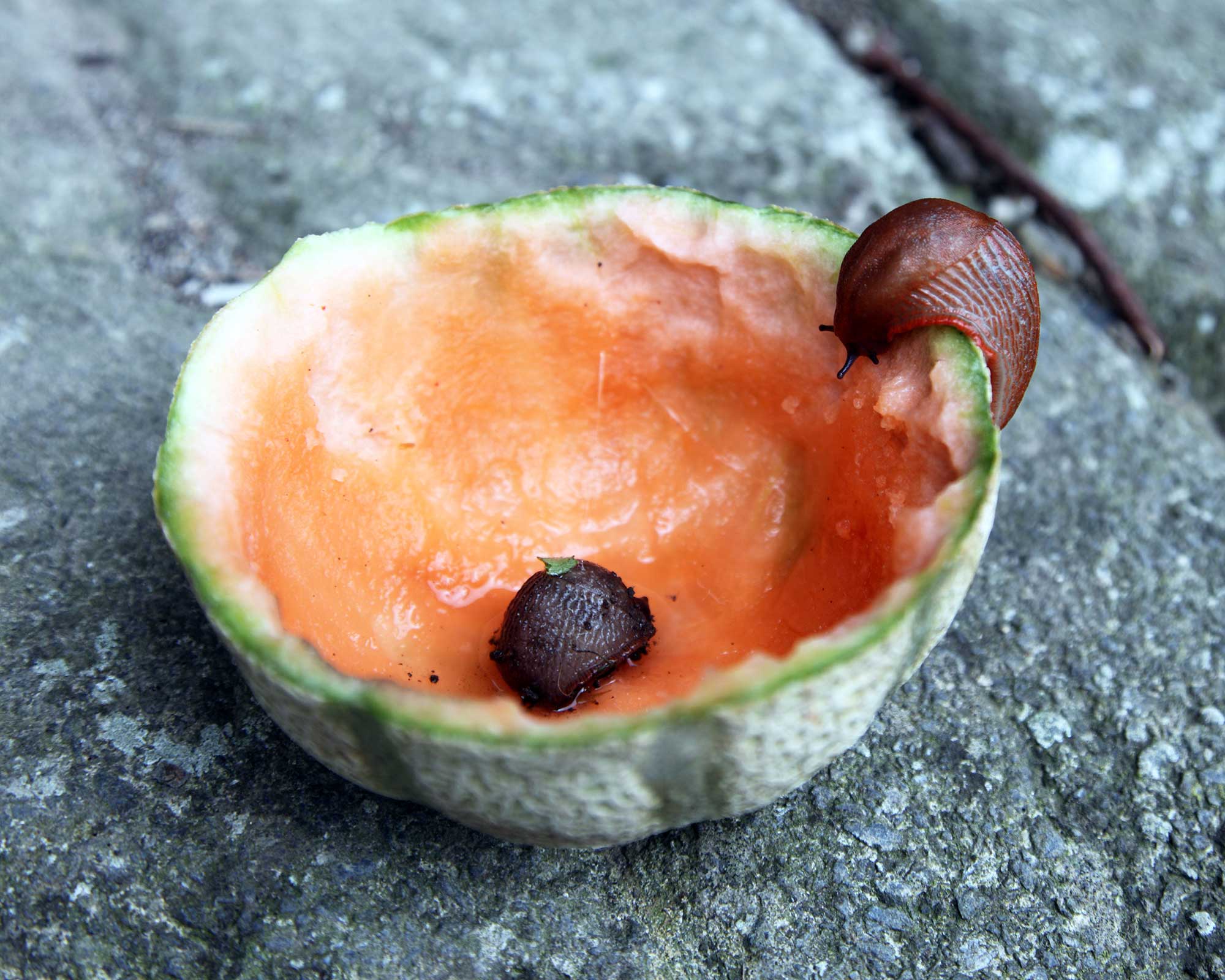
A melon half can be put to good use as a slug trap
12. Get rid of slugs by encouraging wildlife into your garden
Encourage birds and hedgehogs into your garden to help reduce the resident slug population in the most natural way possible.
Experts at the Royal Horticultural Society explain, 'Some birds, frogs, toads, hedgehogs, slow-worms and ground beetles eat slugs and these predators should be encouraged in gardens.'
Make sure the best bird feeders are full and create a hedgehog highway in your fence to allow them an easy way into your garden to feast on the slugs. You can find out how to help hedgehogs with our in-depth advice feature.
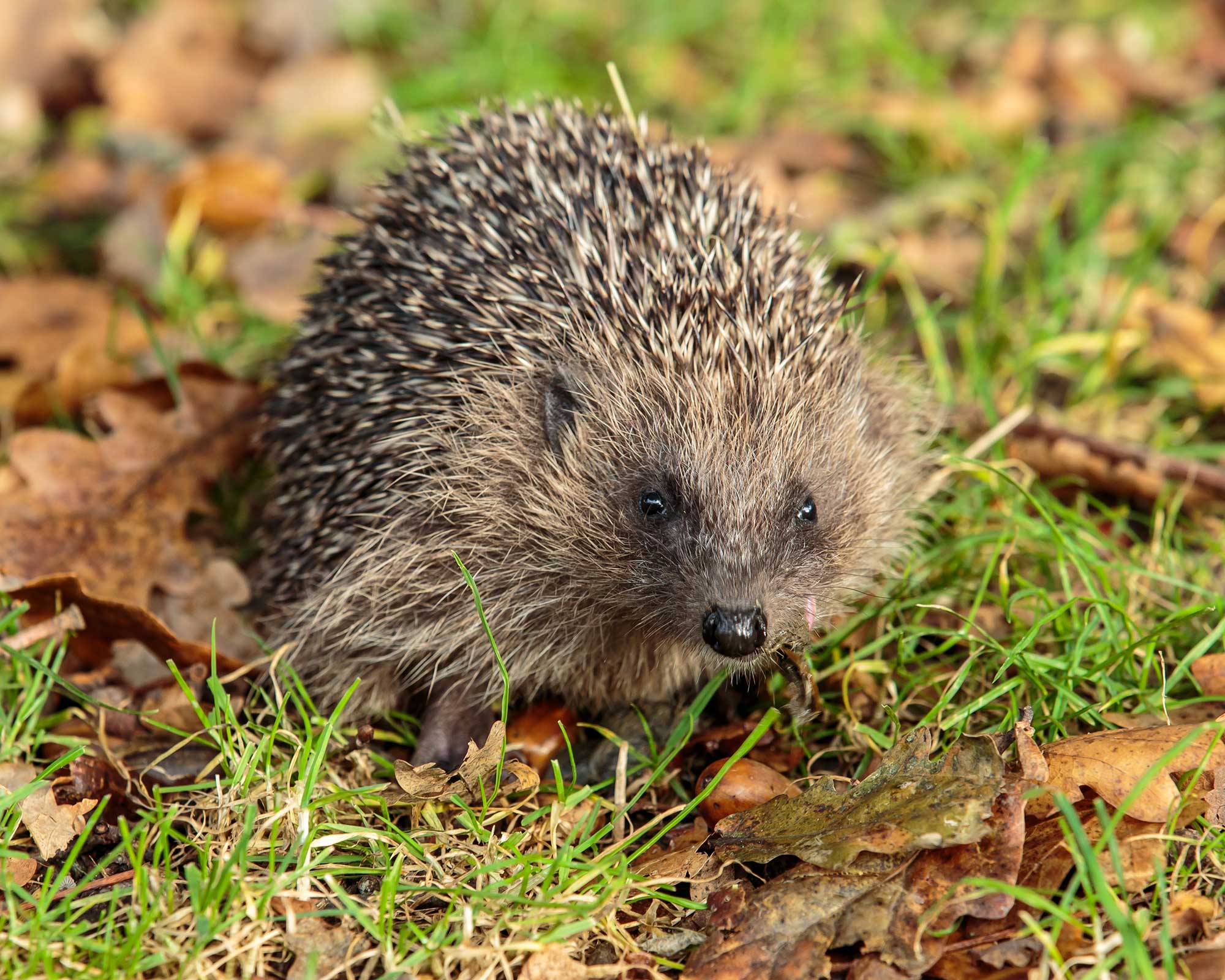
Increasing the hedgehog population is a good way to control slug numbers
13. Kill slugs by sprinkling salt
If all else fails, it might be time to bring out the salt. Although salt quickly kills slugs you need to avoid sprinkling it around too liberally as plants are also adversely affected by an excess of salt and will not fare well if it lands on them.
So use it carefully in your flowerbed ideas and make sure it's not too near your most precious plants.

Lifestyle journalist Sarah Wilson has been writing about gardens since 2015. She's written for Gardeningetc.com, Livingetc, Homes & Gardens, Easy Gardens and Modern Gardens magazines. Having studied introductory garden and landscape design, she is currently putting the skills learned to good use in her own space where the dream is establishing a cutting garden.
